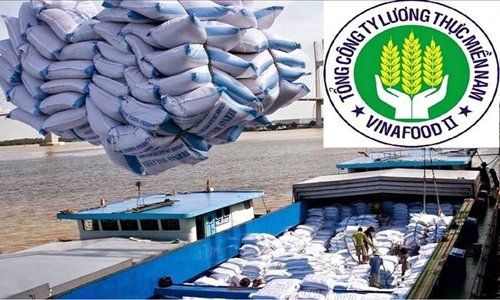Vietnam: MARD announces new criteria for strategic investors in Vinafood 2 equitization
Specifically, strategic investors (foreign and domestic enterprises alike) are only required to have a charter capital of at least VND2,5 trillion (US$109 million) in 2016, in addition to having profit in the 3 consecutive years between 2014 and 2016, while having no accumulated loss as of December 31, 2016.
Previously, Vinafood 2 proposed strategic investors to have total assets of at least VND10 trillion (US$441.01 million) and a minimum charter capital of VND3.5 trillion (US$154.355 million). Strategic investors would also need to have recorded positive after-tax profit in three consecutive years with no accumulated losses by the end of 2015.
That said, by lowering the required charter capital and removing the criteria of minimum total assets and rates of return, the new plans will open new doors for investors to take part in the company’s equitization process, said acting CEO of Vinafood 2, Nguyen Ngoc Nam.
However, the plan also prevents investors of small-scale and those incompatible with the company’s production and business activities.
Rice and seafood will continue to be the company’s main products after completing the equitization process, added Nam. At present, Vinafood 2 is stepping up efforts to produce seafood based on the existing facilities in Tien Giang, Tra Vinh, and Dong Thap.
With regard to rice production, Vinafood 2 is one of the few enterprises producing rice on a large scale and meeting the huge market demand.
In the coming time, Vinafood 2 will focus on producing high-quality rice, with a view to ensuring food safety and improving the linkages in production, in parallel with brand development, eventually tapping in some of the strictest overseas markets.
Currently, Vinafood 2’s charter capital is VND5 trillion (US$220.51 million), equivalent to 500 million shares with the value of VND10,000 (US$0.44) per share. Under the current plan, the government is holding 255 million shares, representing 51% of its charter capital. The Ministry of Agriculture and Rural Development will be the representative of state ownership in the company after the equitization.
According the equitization plan, the number of shares auctioned to ordinary investors is 114.8 million shares, accounting for 22.97% of the company’s charter capital. Strategic investors will be offered 125 million shares, representing a quarter of Vinafood 2’s charter capital.
Based on a report released by Vinafood 2, revenue in 2015 was recorded at VND22.7 trillion(US$1 billion), which is lower than the VND26.3 trillion (US$1.1 billion) revenue in 2016.
Also in 2015, Vinafood 2 reported a loss of VND9 billion (US$396.000), taking the accumulated losses to VND1.06 trillion (US$46 million), while in 2013 and 2014 the company also suffered losses of VND268 billion (US$11.8 million) and VND907 billion (US$39 million), respectively.


 Thailand
Thailand




